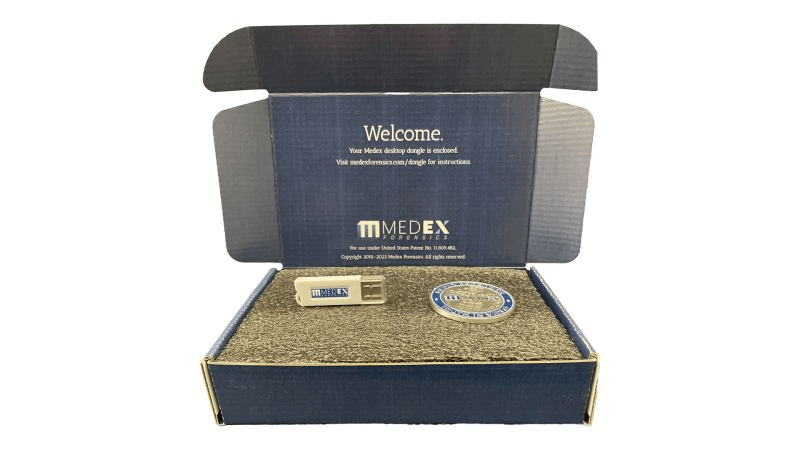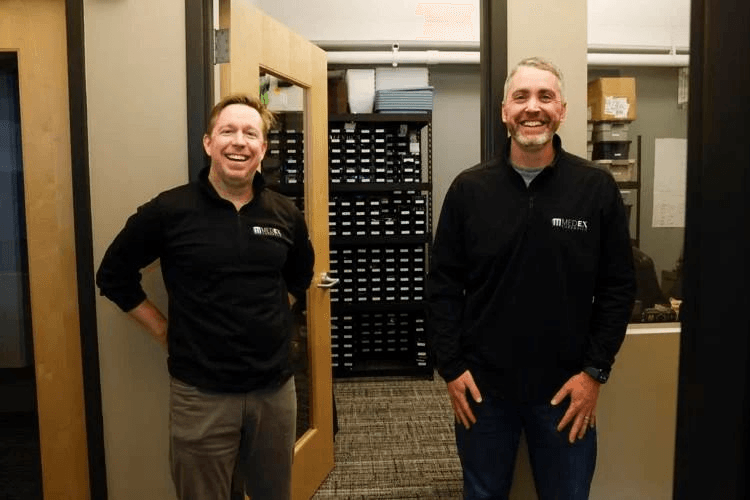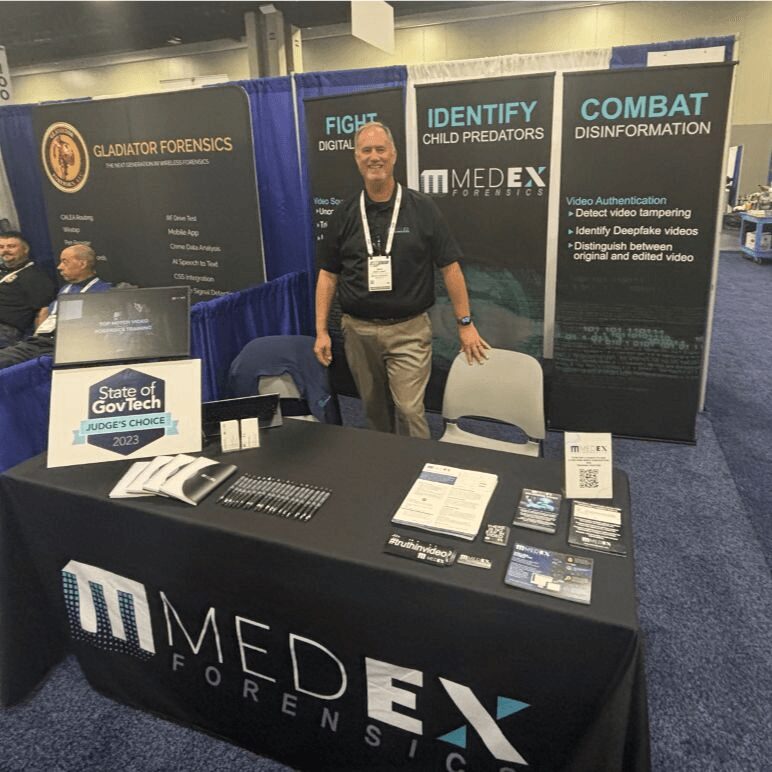Alright – so today we’ve got the honor of introducing you to Bertram Lyons. We think you’ll enjoy our conversation, we’ve shared it below.
Bertram, looking forward to hearing all of your stories today. One of the things we most admire about small businesses is their ability to diverge from the corporate/industry standard. Is there something that you or your brand do that differs from the industry standard? We’d love to hear about it as well as any stories you might have that illustrate how or why this difference matters.
In 2016, the Federal Bureau of Investigation (FBI) asked us to solve a pressing issue for them and others in the law enforcement community: proving or disproving the authenticity of digital video evidence. Were videos of terrorist beheadings true or fake? What cameras created child sexual exploitation videos found online? Is a bystander’s submitted video of a crime authentic or was it edited? Has body worn camera footage been edited before being shared with the public?
In 2020, we solved the issue.
In 2021, we founded Medex Forensics.
The role that video plays in disinformation schemes and as evidence today, and in the future, is exceedingly clear. In 2020 alone, the National Center for Missing and Exploited Children (NCMEC) received over 31 million videos as tips in over 21 million reports that were collected via the tip line. Over the past two years, viral deepfake videos of Tom Cruise, the Pope, President Obama, and President Trump surfaced online and have gone viral. They were shockingly convincing and demonstrated just how far falsification technology has come. As a result of the current state of high quality synthetic media, public opinion has shifted toward a growing distrust in visual imagery. Everyday, video evidence, whether from law enforcement or from citizens, plays a central role in how our society identifies what is truth and what is justice. Not only is detecting forgeries of paramount importance, proving authenticity will be a central part of building trust in video evidence online and in the courtroom.
We help solve these problems by being able to identify the software and/or hardware source of a video file, to identify the generation of a video file, to identify file tampering, and to succeed at the scale and speed required in today’s digital landscape.
Our incubation period, 2016 to 2021, collaborating with the FBI’s Operational Technology Division, gave us the opportunity to develop our patented methodology in a real-world setting, responding to the challenges of legal investigations and difficult case work.
In July of 2022, we opened our doors and began selling our initial commercial SaaS and Desktop products, the Medex Video Authentication Platform, and deployed a soft launch into the market. Medex offers law enforcement professionals, journalists, lawyers, forensic examiners, and intelligence analysts a first-ever forensic toolset to automatically inspect a video file, identify the camera that created it, identify any software that was used to edit it, and report modifications that were made to the file. Our users in federal, state, county law enforcement, and private agencies are already employing Medex globally to solve child exploitation video production cases, to validate body worn camera video for court, and to disprove disinformation videos. Medex’s strengths lay in its reliability, speed, ease-of-use, potential for investigative leads, and ability to identify modification and validation errors in video files. Both the SaaS and Desktop solutions are low overhead and commitment for organizations to license and try the technology themselves.
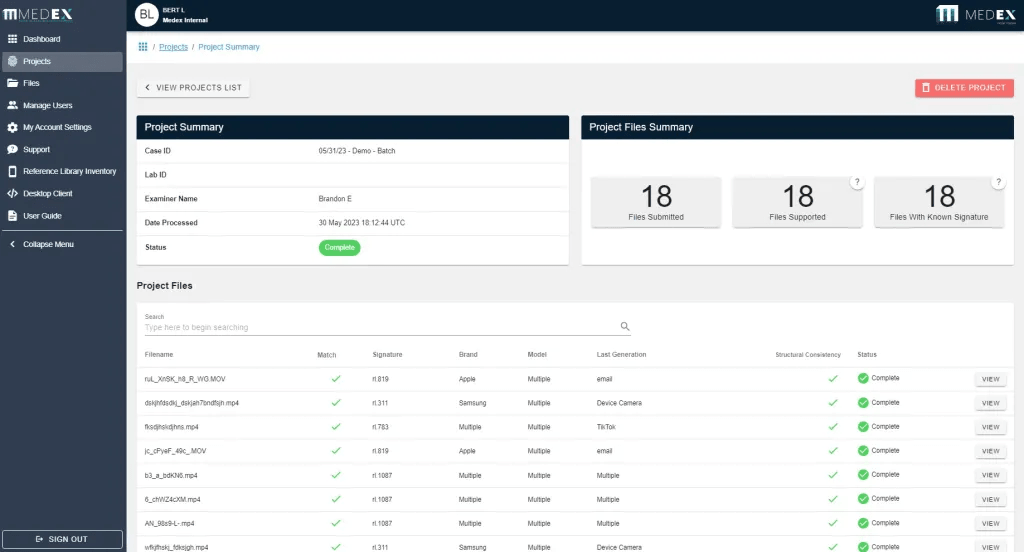
Bertram, before we move on to more of these sorts of questions, can you take some time to bring our readers up to speed on you and what you do?
Medex Forensics develops and deploys digital forensic technology to identify child predators, fight digital crime, and combat disinformation. We care deeply about helping our colleagues and clients determine the trustworthiness of digital video evidence and to know when a video has been edited or modified.
Our larger vision and mission is to be the trusted partner for flagging authenticity and originality for digital video across the globe, whether that is video shared on social media platforms, video used in courtroom proceedings, video used in news media investigations, or video shared by political parties and leaders to the wider public. Medex’s unique ability to objectively articulate the provenance of a digital video file will become the go-to engine for trust and authenticity for digital video – the largest growing communication medium in the world.
Our goal is to increase society’s ability to determine trustworthiness in video evidence.
Detectives in state and local law enforcement agencies across the US are able to use Medex to reduce time spent analyzing and examining digital video evidence. For example, when Seattle Police Department receives videos submitted from citizens after a crime using their Axon Citizen platform, Medex is being used to quickly identify the trustworthiness of videos before 1) they are included in the investigation and 2) too much time has passed making it difficult to reconnect with the citizen who submitted in the case that Medex determined the citizen has edited or trimmed the video before submitting – allowing investigators to ensure the best and most useful evidence is entered into the case files and used in the investigation. It increases accuracy in investigations, reduces time it takes a detective to ensure the best evidence is in hand, and ensures that important video evidence makes it to court and can be used to incriminate or exonerate depending on the value of the evidence. Additionally, at scale, when larger crises happen in a particular area, when thousands of citizen-submitted video arrive via tip lines, Medex is allowing investigators to automate the task of sifting through videos downloaded from Twitter or Facebook versus camera-original videos, which are the most likely to be of interest in an investigation. This takes significant effort without a tool such as Medex to automate the analysis and triage and to categorize videos quickly for agencies.
Currently, using Medex, an agency can reduce a single investigator’s time authenticating video evidence by more than 80%. The efficiency and cost-savings impact is tremendous and allows investigators to spend less time handling video evidence and more time solving violent crime and crimes against children.
Children being sexually exploited online is a major global issue that is predominately investigated using video evidence acquired online, via tip lines, or directly from suspects’ devices. In 2020 over 31 million video tips were submitted to the National Center for Missing and Exploited Children (NCMEC).
This type of video is typically called “child sexual assault material” – CSAM.
District Attorneys and Prosecutors are benefiting from the use of Medex especially in cases investigating CSAM. Medex provides the distinct ability to determine, without a human having to watch a video, whether it is a camera-original video or whether it was downloaded from a social media platform or edited within a video editing platform. The challenge here is identifying which are original (production), versus distributed (shared) , versus consumed (possession). And being able to do it at scale. These distinctions can quickly determine the difference between “production” of CSAM versus “possession” of CSAM. Currently we have been losing the fight against this type of online child exploitation. A tremendous amount of effort and money goes into arresting and prosecuting low level offenders. In reality, we’re only addressing possession and sometimes distribution. This is the low hanging fruit and little is being done to address the actual production of CSAM material.
Medex allows investigators and prosecutors, for the first time, to rapidly identify between possession, distribution, and/or production on the devices they encounter.
Our founding team is our greatest asset and is one of the key competitive advantages we bring to the market. Bertram Lyons, CEO, an internationally-recognized digital media expert and archivist, developed Medex’s patent-pending methodology along with Dan Fischer, CTO. Bertram revolutionized digital artifact handling at the U.S. Library of Congress and has been hired by organizations throughout the world to improve their digital media processes, including the Smithsonian Institution, the Federal Bureau of Investigation, the United States Copyright Office, Harvard University, Yale University, the British Library, Facebook, Spotify, and Paramount Pictures. Bert is a current partner at AVP, a software development and information management firm, where he has successfully built a multi-million dollar revenue stream in software products and services for a global market.
Brandon Epstein, CFO (Chief Forensic Officer), a 15-year law enforcement veteran and only person in the world with both forensic video certifications (CFVA and CFVE) and MS in Media Forensics, has been central in our initial efforts to educate the market about how Medex revolutionizes what can be done with digital video investigations. Brandon is the Chair of the Scientific Working Group on Digital Evidence (SWGDE), the Chair of the International Association for Identification (IAI) Forensic Video Certification Board (FVCB), a member of the International Association of Chiefs of Police (IACP) Computer Crime and Digital Evidence Committee (CCDE), and a member of the American Academy of Forensic Science (AAFS). Brandon’s central leadership in our target market gives immediate credibility to our product and positions us to enter the market with warm contacts for sales. For years Brandon has provided consulting services to the leading forensics software companies, i.e., Cellebrite, Axon, Amped, iNPUT-ACE. He has close contacts to these organizations and to their customers and will be essential as we build strategic partnerships and cross-sell services.
Dan Fischer, CTO, is one of the foremost media forensics software engineers in the world. Dan served as the principal software engineer for forensic digital video analysis developed in conjunction with the FBI Forensic Audio, Video, and Image Analysis Unit in Quantico, VA He has led critical forensic and data-intensive engineering initiatives for the U.S. Library of Congress, the Federal Agencies Digital Guidelines Initiative, Indiana University, the Andrew W. Mellon Foundation, the Wisconsin Department of Justice, and the National Wildlife Foundation, among many others. Dan is the architect of Medex’s existing SaaS platform and the co-inventor of Medex’s patent-pending methodology. With expertise in global logistics and e-commerce services, algorithms, data warehouse development, and data science, Dan will lead the build-out of Medex’s engineering team and Medex’s software offerings.
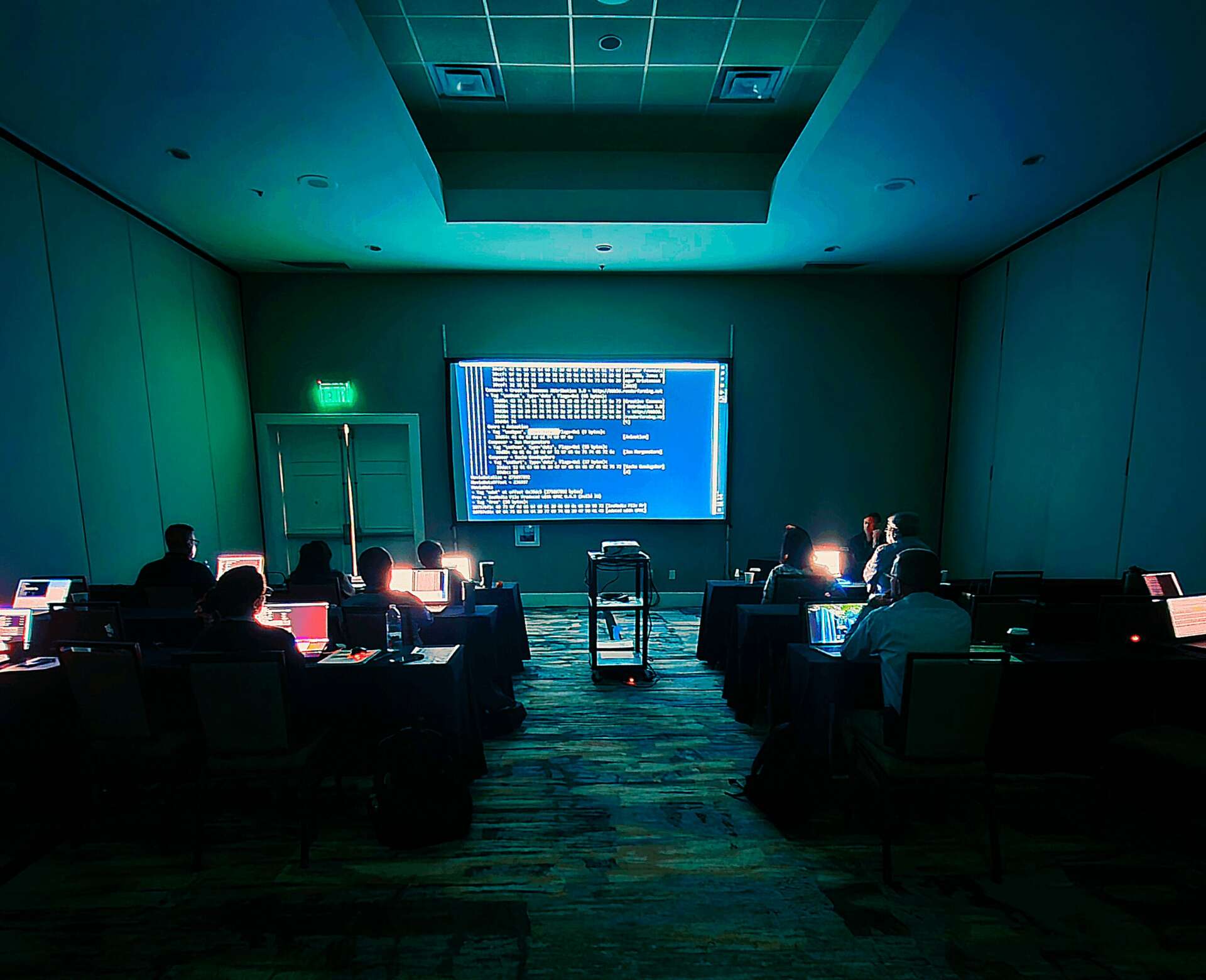
We’d love to hear about how you met your business partner.
When I moved to Madison with my wife, Lisa, I was working remotely for a company called AVP (wearevp.com). I found a co-working space and was co-located with another company (a small startup at the time called PortalMedia). For a few years I listened to the engineers from PortalMedia build e-Commerce sites and develop new tools to support their overall monitoring and management of the sites they were building. In 2016 I got an opportunity to use my skills around file formats and binary information to train evidence examiners at the FBI. There was a need to automate some of the manual tasks I was teaching and so I checked in with one of the PortalMedia engineers who I admired (based on years of overhearing their engineering discussions) for his logic and creative technical problem-solving skills – Dan Fischer. Dan was eager to join in with me on the development of new file-level parsing technology and we really worked well together. We’ve been at it ever since and now both work fulltime for our business, Medex Forensics, and continue to innovate and push our company forward.
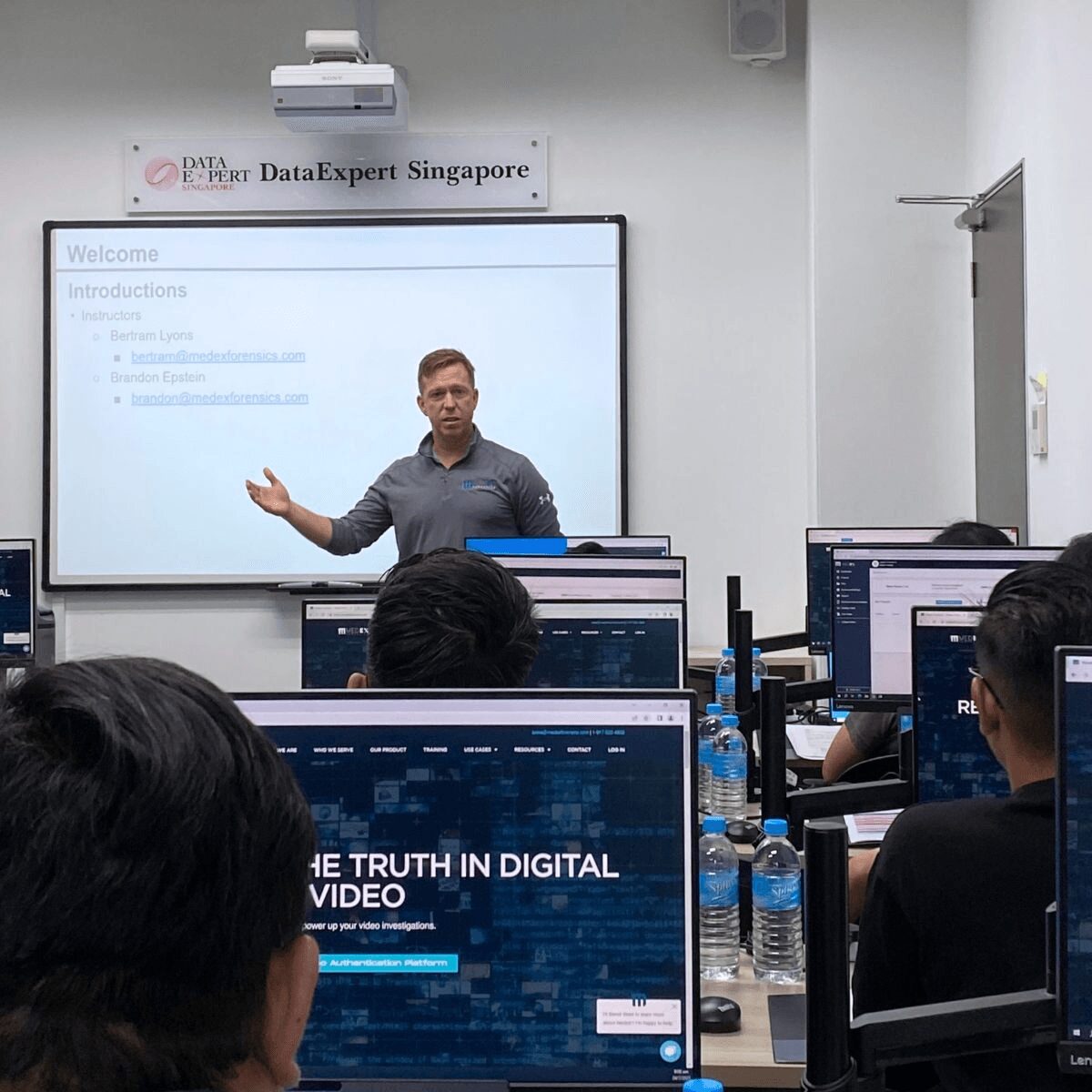
What do you think helped you build your reputation within your market?
I firmly believe in showing your work, sharing your knowledge, helping others grow their knowledge, and collaborating with others in your field. We have worked hard at Medex to demonstrate the value of our methodology separately from the sales of our product. We want to make sure that the communities we serve can take away value from our company even if they are not a customer. Although we hope to attract customers to keep our business growing and to ensure we can continue to innovate and support customers with our technologies, we also hope to contribute to the community and to push the overall level of practice further. I think this helps to build our reputation as trustworthy, honest, collaborative, and generous colleagues – not just a team of business people trying to make a buck – because that’s not who we are. First and foremost we care about the mission of the customers we support – it’s also our mission – justice, fairness, truth, compassion, excellence.
Contact Info:
- Website: https://www.medexforensics.com
- Linkedin: https://www.linkedin.com/company/medex-forensics/
